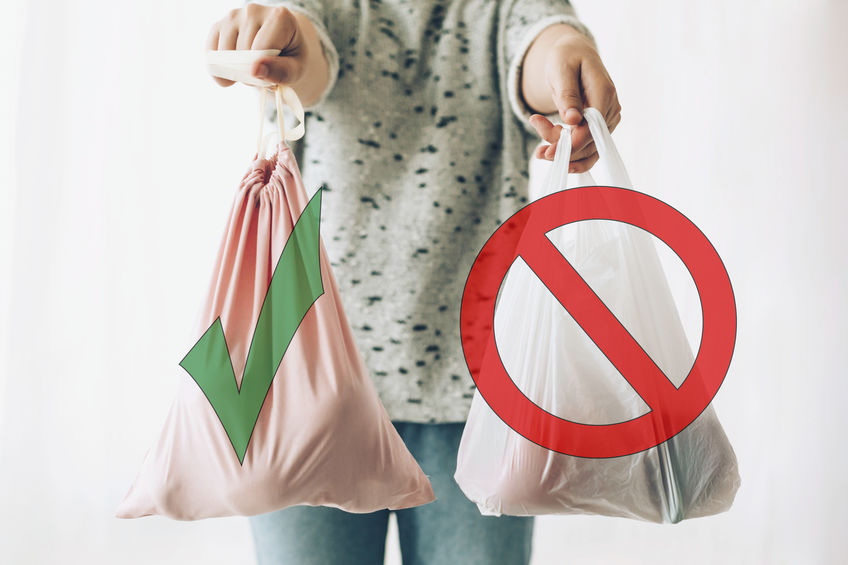Environmental virtue signaling and folly continues apace, the latest example of which is New York State’s ban on plastic grocery bags that went into effect earlier this month.
Count on at least two results from the outlawing of plastic grocery bags: increased energy use and environmental cost to produce more paper grocery bags; and increased spreading of germs from reusable tote bags at grocery stores, which is especially worrisome with the coronavirus pandemic.
New York last year became the second state after California to ban single-use plastic grocery bags, though there are some exceptions allowed. There are now approximately 400 local jurisdictions in the United States with such bans.
The primary reason for banning plastic grocery bags is to reduce litter, yet only 0.5 percent of U.S. municipal waste is comprised of plastic bags. Plastic bags are not biodegradable and can end up polluting waterways, but they are recyclable. It is axiomatic that litter is a bad thing, but banning such bags is still more harmful than positive. Plastic grocery bags also have a secondary use as garbage pail liners, carrying other items, and for various household purposes.
Rebecca Taylor, an economist at the University of Sydney, Australia, has studied the effects of banning plastic bags and concluded such laws increase greenhouse gas emissions based on the substitutionary effects of plastic garbage bags and paper.
The absence of plastic grocery bags means more paper bag usage, which further studies show is worse for the environment. More paper bags means more trees cut down to produce them, which requires more energy and chemical use in the process. Though paper bags are biodegradable, they can still end up as litter and take up more landfill space than plastic grocery bags.
In locations with bans on plastic grocery bags, Taylor found that plastic garbage bag sales sharply increased since they can substitute for the outlawed bags for groceries and secondary use. Plastic garbage bags also are thicker than the banned grocery bags, which diminish the erstwhile benefit of banning them.
Then there are the germs from reusing cloth tote bags for groceries in the absence of plastic grocery bags. Viruses and bacteria that linger in and spread from these reusable tote bags are a hazard to merchants and shoppers who touch items and surfaces that become infected.
A study by the University of Arizona found that reusable bags that were collected from shoppers were rarely cleaned from prior use and that “large numbers of bacteria were found in almost all bags.” This was especially true for bags that contained meat juices.
Compounding the risk is that bacteria and pathogens like coronaviruses can linger on surfaces for up to nine days.
Journalist John Tierney who writes for the City Journal summed it up well: “disposable plastic is the cheapest, simplest and safest way to prevent foodborne illnesses.”
This obvious truth seems not to penetrate those self-proclaimed environmentalists who are committed to banning plastic grocery bags and impervious to the boomerang effects.
The downside of the alternatives to plastic single-use grocery bags beg the questions: will policymakers reconsider the bans in place; or will efforts continue to enact new bans? Environmental religiosity is hard to overcome no matter how many facts come to light on issues including carbon emissions, man-made global warming, nuclear energy, or plastic grocery bags.
Plastic itself faces continued hostility from some environmental quarters for the growing problem of litter, particularly its baleful effect on oceans, but also for the simple fact that it is derived from fossil fuels. Plastic waste indeed is a problem – a crisis – but banning its use, especially for single-use grocery bags, is not the way to address it. There are other means underway to deal with the larger issue of plastic waste, as CFACT has reported.
The environmental cost of alternatives to plastic grocery bags should cause policymakers to resist further bans on them and to reconsider existing bans. More so, the spread of coronavirus and other bacteria demands the repeal of the bans on plastic grocery bags.
